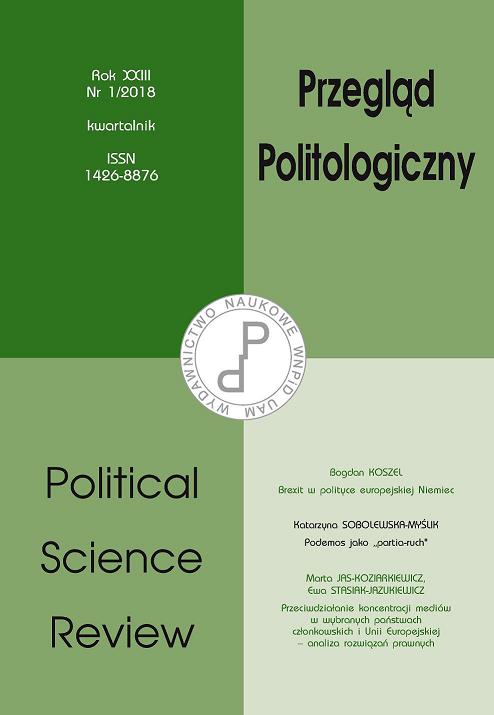Wybory regionalne jako wybory drugorzędne a perspektywa rządzenia wielopoziomowego
Are modern regional elections second-order elections? - Reformulation of the concept by the Multilevel Government School
Author(s): Tatiana MajcherkiewiczSubject(s): Politics, Sociology
Published by: Uniwersytet Adama Mickiewicza
Keywords: regional elections; multilevel system; second-order elections; regional party systems; state-wide parties and non-state-wide parties
Summary/Abstract: The article discusses the findings of the multilevel government school (MLG) which has been advancing since the beginning of the 21st century, studying regional elections. The concept defining regional elections as second-order elections has been recognized as critical, although it is reformulated by the MLG school to respond to changes in modern regional politics in Europe. Important recent political developments include the entrenchment of regional governments, the increase in the number of electoral appointments, expanded competencies of voters, the rise of non-state-wide parties and the empowerment of sub-national organizational levels of parties. Current MLG research focuses on identifying and explaining the cases where second-order election predictions do not appear to hold for regional elections, identifying states where it is still the case and, finally, identifying factors that increase or decrease this effect. An interesting theoretical development regarding regional elections as second-order elections is that this concept is supplemented and enriched by the theories of regional authority and territorial cleavages. The final part of the article reviews studies on regional elections and the applicability of the second-order concept to Central and Eastern European countries.
Journal: Przegląd Politologiczny
- Issue Year: 2018
- Issue No: 1
- Page Range: 171-190
- Page Count: 20
- Language: Polish

